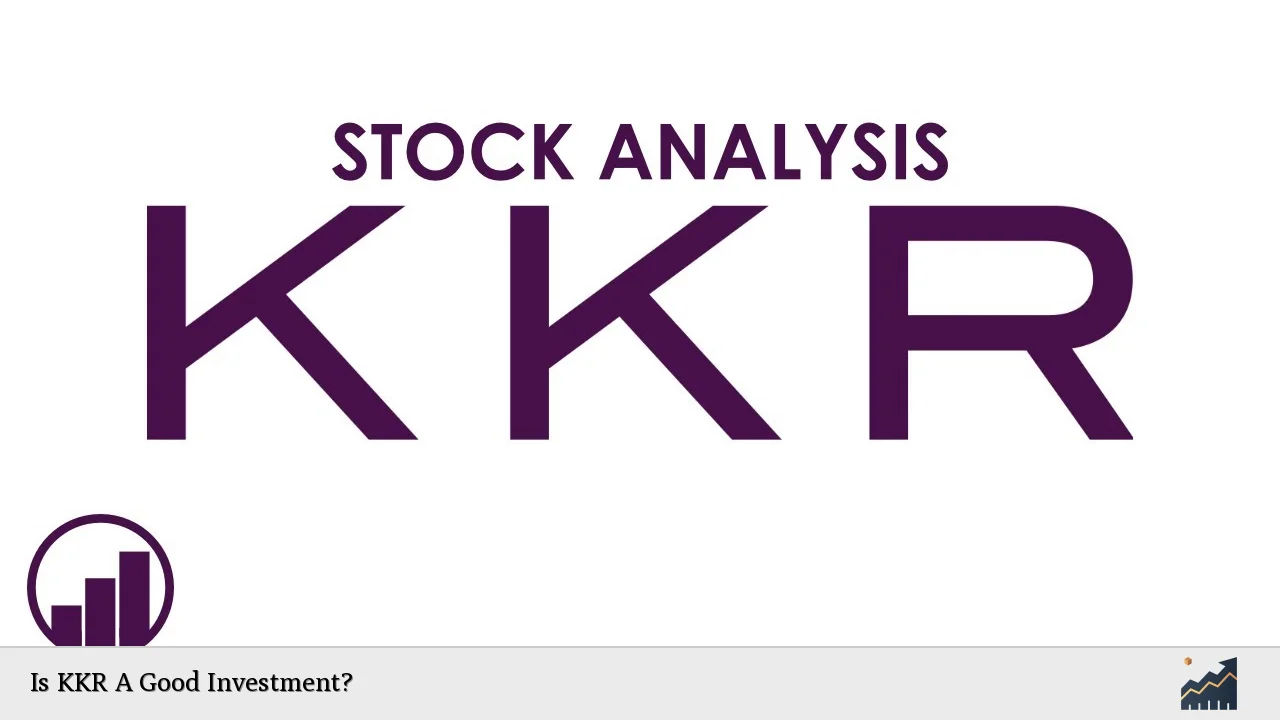KKR & Co. Inc. (KKR) is a prominent global investment firm known for its extensive portfolio in private equity, real estate, infrastructure, and credit markets. Founded in 1976, KKR has established itself as a leader in the investment landscape, managing over $550 billion in assets under management (AUM) as of 2023. The firm’s reputation is built on its ability to navigate complex market conditions and deliver strong returns to its investors. This article will explore whether KKR is a good investment by analyzing its financial performance, growth strategies, competitive advantages, and potential risks.
| Aspect | Details |
|---|---|
| Founded | 1976 |
| AUM | Over $550 billion |
| Key Focus Areas | Private Equity, Real Estate, Infrastructure, Credit |
| Market Capitalization | Approximately $43 billion |
Financial Performance
KKR’s financial performance has been impressive, particularly in recent quarters. In Q2 of 2024, the firm reported an adjusted net income per share of $1.09, exceeding analyst expectations and reflecting a 49% year-over-year increase. Additionally, KKR’s total GAAP revenue rose to $4.17 billion, marking a 15% increase from the previous year. This robust growth can be attributed to the firm’s effective capital deployment strategies and its ability to identify lucrative investment opportunities.
The firm’s fee-related earnings (FRE) also reached a record $755 million, up 25% from the prior year. Such earnings are crucial as they represent the revenue generated from management fees and are indicative of the firm’s operational efficiency. KKR’s capital deployment for the same quarter was particularly noteworthy, with $23 billion invested—more than double the amount from the same period last year. This strategic move demonstrates KKR’s commitment to expanding its portfolio and capitalizing on favorable market conditions.
Growth Strategies
KKR’s growth strategies are multifaceted and aimed at sustaining its competitive edge in the investment sector. The firm has set ambitious targets for the future, including raising over $300 billion in capital by 2026 and achieving annual operating earnings of over $1 billion from its Strategic Holdings by 2030. These goals highlight KKR’s proactive approach to capital raising and strategic investments.
Moreover, KKR is focusing on diversifying its investment strategies across various sectors, including technology growth and asset-based finance opportunities. The management team has emphasized the importance of maintaining a healthy deal pipeline for future investments, which is essential for sustaining growth in an increasingly competitive market.
KKR’s ability to adapt to changing market dynamics is further exemplified by its commitment to investing in emerging sectors such as renewable energy and technology-driven companies. This adaptability not only positions KKR favorably for future growth but also aligns with broader economic trends that favor sustainable investments.
Competitive Advantages
One of KKR’s significant competitive advantages lies in its brand reputation and extensive experience in the private equity space. As one of the pioneers of leveraged buyouts, KKR has built a strong legacy that attracts high-quality deal flow and investment opportunities. The firm’s long-standing presence in the market allows it to leverage relationships with key stakeholders across various industries.
KKR’s scale is another critical advantage; with over 4,150 employees operating in multiple countries, it can efficiently manage diverse investment portfolios while accessing global markets. The firm’s strong internal rate of return (IRR), which has consistently exceeded 20% over the past decade, further underscores its effectiveness in generating returns for investors.
Additionally, KKR’s diversified approach to investments reduces risk exposure by spreading capital across different asset classes and sectors. This diversification strategy helps mitigate potential downturns in specific markets while providing investors with a balanced risk-return profile.
Risks and Considerations
While KKR presents several compelling investment opportunities, potential investors should also be aware of associated risks. The private equity sector is inherently risky; investments can be illiquid, and there may be limited transparency regarding underlying assets. Economic downturns can significantly impact valuations and returns on investments.
Moreover, as KKR continues to scale its operations and deploy significant capital, there is a risk that it may face challenges in identifying attractive investment opportunities at reasonable valuations. Increased competition for deals can lead to inflated prices and reduced potential returns.
Investors should also consider regulatory risks that could affect KKR’s operations or profitability. Changes in financial regulations or tax policies may impact how private equity firms operate or how returns are taxed.
In summary, while KKR offers a strong historical performance and promising growth strategies, potential investors must conduct thorough research and consider their risk tolerance before making any investment decisions.
Conclusion
In conclusion, KKR & Co. Inc. stands out as a formidable player in the global investment landscape due to its impressive financial performance, ambitious growth strategies, and competitive advantages rooted in brand reputation and operational scale. The firm’s ability to navigate complex market conditions while delivering strong returns makes it an attractive option for investors seeking exposure to private equity and alternative asset classes.
However, it is essential for potential investors to remain vigilant about the risks associated with private equity investments and conduct comprehensive due diligence before committing capital. With careful consideration of both opportunities and challenges ahead, investing in KKR could align well with long-term financial goals.
FAQs About KKR A Good Investment
- What is KKR known for?
KKR is known for being a leading global investment firm specializing in private equity, real estate, infrastructure, and credit. - How much does KKR manage?
As of 2023, KKR manages over $550 billion in assets. - What were KKR’s recent earnings?
In Q2 2024, KKR reported an adjusted net income per share of $1.09. - What are some risks of investing in KKR?
The risks include illiquidity of investments, potential economic downturns affecting valuations, and regulatory changes. - Is KKR considered a stable investment?
While KKR has shown strong historical performance, investors should assess their risk tolerance before investing.

